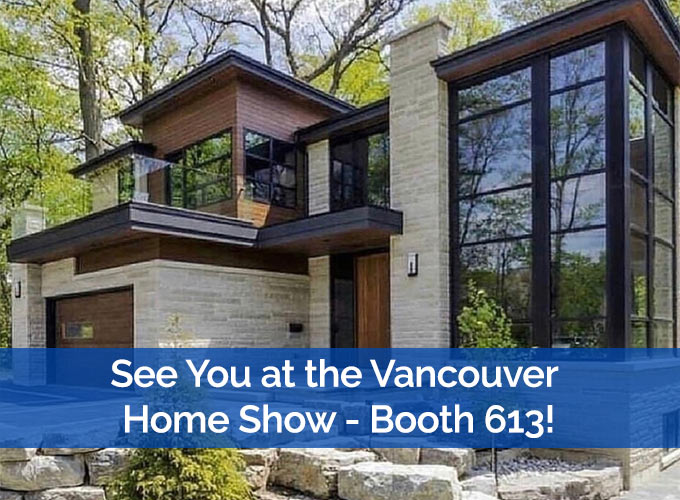The concept of universal design has been gaining traction in recent years as homeowners recognize the importance of creating inclusive and accessible living environments for all. Whether you're building a custom home or undertaking a renovation project in Vancouver, embracing universal design principles can elevate your space, ensuring it accommodates the needs and lifestyles of diverse individuals, including those with mobility challenges, disabilities, or age-related limitations. As a progressive custom home builder and renovation company in Vancouver, we, at Nicons Enterprises LTD., take pride in our commitment to incorporate universal design elements, creating spaces that are not only beautiful but also welcoming and adaptable to various requirements.
Universal design seeks to create environments that cater to the widest range of individuals, eliminating barriers and promoting accessibility, adaptability, and seamless functionality. These design principles apply to every aspect of a home, from entryways and kitchens to bathrooms and outdoor spaces. By integrating universal design principles, we can help our clients create homes that can gracefully adapt to evolving life situations, providing comfort and confidence for years to come.
In this article, we will delve into the key components of universal design and explore how you can successfully incorporate these principles into your custom home or renovation project in Vancouver. We will also share practical tips and design strategies, discussing the benefits of universal design for homeowners and residents of all ages and abilities. Join us as we discuss how to create a living space that not only meets today's requirements but also anticipates your and your family's long-term needs.
1. Key Components of Universal Design
Universal design revolves around seven principles aimed at creating inclusive and accessible spaces for individuals of all ages, abilities, and needs. Understanding these principles is essential when integrating universal design elements into your custom home or renovation project:
- Equitable use: Design the space for diverse users, ensuring it can accommodate a wide range of abilities, disabilities, or limitations.
- Flexibility in use: Allow for customization and adaptability to cater to individual preferences and needs.
- Simple and intuitive use: Create a user-friendly environment that is easy to navigate, understand, and operate for all, regardless of their experience or ability.
- Perceptible information: Ensure essential information is easily communicated through various means, targeting multiple senses, if necessary.
- Tolerance for error: Design for error reduction and incorporate features that minimize the likelihood and consequences of accidents or unintended actions.
- Low physical effort: Minimize physical exertion by implementing solutions that reduce the need for excessive strength, extensive reach, or repetitive actions.
- Size and space for approach and use: Provide ample room for maneuvering, reaching, and interacting with space and its elements, considering the needs of those with mobility equipment or physical limitations.
2. Adaptable Living Spaces and Layouts
To create a custom home or renovation that embraces universal design, consider these strategies for developing adaptable living spaces and layouts:
- Open floor plans: Emphasize open-concept layouts that allow for easy navigation and uninterrupted movement from one space to another.
- Barrier-free entrances: Design level or gently sloping entryways, eliminating the need for steps and improving access for individuals with wheelchairs, walkers, or strollers.
- Wide doorways and hallways: Ensure doorways and hallways are wide enough to accommodate mobility devices, such as wheelchairs or scooters.
- Multi-generational options: Consider integrating in-law suites, elevator access, or accessible ADUs (Accessory Dwelling Units) to accommodate diverse family living situations.
3. Accessible Kitchens and Bathrooms
Kitchens and bathrooms are high-traffic areas with specific usability needs. Integrate universal design elements to maximize functionality, safety, and accessibility:
- Adjustable countertops and workspaces: Incorporate height-adjustable countertops or those with varying heights to cater to diverse users, including those seated or using mobility devices.
- Accessible appliances and storage: Choose appliances with easy-to-reach controls, front-loading options, and side-opening designs, as well as storage solutions that maximize reachability and ease of use.
- Barrier-free showers and tubs: Design curbless walk-in showers or low-threshold tubs with grab bars, seating, and non-slip surfaces to promote both safety and accessibility.
- Comfort-height toilets: Install taller toilets with grab bars to facilitate ease of use for those with mobility challenges.
4. Lighting, Control, and Technology Considerations
Effective lighting, controls, and technology can significantly enhance the functionality and usability of a universally designed space:
- Adequate lighting: Opt for natural lighting where possible and incorporate layered lighting solutions to ensure proper illumination for tasks and ambiance without creating glare.
- Reachable controls and switches: Place switches, thermostats, and outlets at heights accessible by all users, including those in wheelchairs or with limited reach.
- Smart home technology: Incorporate automation and voice-assistants to promote ease of use and accessibility for individuals with disabilities or physical limitations.
Conclusion
Integrating universal design principles into your custom home or renovation project can significantly enhance the functionality, comfort, and accessibility of your living space for individuals of all ages and abilities. By anticipating and addressing the diverse needs of potential occupants, you can create a beautiful, welcoming, and adaptable environment that stands the test of time. Remember, designing a universally accessible home is not just about addressing current needs; it's about creating spaces that can accommodate life's inevitable changes and challenges.
Contact Nicons Enterprises LTD. today to learn how we can help you incorporate universal design principles into your custom home or home renovation project, ensuring the creation of a truly adaptable and inclusive living environment. Our team of passionate professionals is committed to making your dream of an accessible and functional space a reality. Let's work together and make a lasting impact on the lives of those who will call your custom home or renovation their own.







